
Arthur Phillip was a British Royal Navy officer who served as the first governor of the Colony of New South Wales.
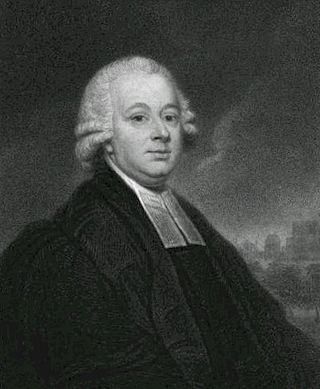
Nevil Maskelyne was the fifth British Astronomer Royal. He held the office from 1765 to 1811. He was the first person to scientifically measure the mass of the planet Earth. He created The Nautical Almanac, in full the British Nautical Almanac and Astronomical Ephemeris for the Meridian of the Royal Observatory at Greenwich using Tobias Mayer's corrections for Euler's Lunar Theory tables.
The history of Victoria refers to the history of the Australian state of Victoria and the area's preceding Indigenous and British colonial societies.

The First Fleet was a fleet of 11 British ships that took the first British colonists and convicts to Australia. It comprised two Royal Navy vessels, three store ships and six convict transports. On 13 May 1787 the fleet under the command of Captain Arthur Phillip, with over 1,400 people, left from Portsmouth, England and took a journey of over 24,000 kilometres (15,000 mi) and over 250 days to eventually arrive in Botany Bay, New South Wales, where a penal colony would become the first British settlement in Australia from 20 January 1788.

Philip Gidley King was a British politician who was the third Governor of New South Wales.

Major General Sir Thomas Makdougall Brisbane, 1st Baronet,, was a British Army officer, administrator, and astronomer. Upon the recommendation of the Duke of Wellington, with whom he had served, he was appointed governor of New South Wales from 1821 to 1825.

Lieutenant General Watkin Tench was a British military officer who is best known for publishing two books describing his experiences in the First Fleet, which established the first European settlement in Australia in 1788. His two accounts, Narrative of the Expedition to Botany Bay and Complete Account of the Settlement at Port Jackson provide an account of the arrival and first four years of the colony.

Pemulwuy was a Bidjigal warrior of the Dharug, an Aboriginal Australian people from New South Wales. One of the most famous Aboriginal resistance fighters in the colonial era, he is noted for his resistance to British colonisation which began with the arrival of the First Fleet in January 1788.
The history of Australia from 1788 to 1850 covers the early British colonial period of Australia's history. This started with the arrival in 1788 of the First Fleet of British ships at Port Jackson on the lands of the Eora, and the establishment of the penal colony of New South Wales as part of the British Empire. It further covers the European scientific exploration of the continent and the establishment of the other Australian colonies that make up the modern states of Australia.

Catherine Elizabeth Grenville is an Australian author. She has published fifteen books, including fiction, non-fiction, biography, and books about the writing process. In 2001, she won the Orange Prize for The Idea of Perfection, and in 2006 she won the Commonwealth Writers' Prize for The Secret River. The Secret River was also shortlisted for the Man Booker Prize.
The following lists events that happened during 1788 in Australia.
William Nicolas Dawes (1762–1836) was an officer of the British Marines, an astronomer, engineer, botanist, surveyor, explorer, abolitionist, and colonial administrator. He traveled to New South Wales with the First Fleet on board HMS Sirius.
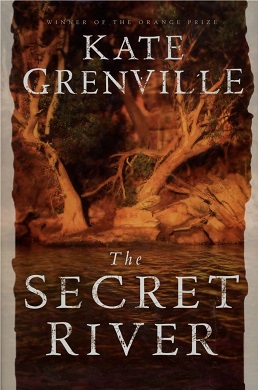
The Secret River is a 2005 historical novel by Kate Grenville about an early 19th-century Englishman transported to Australia for theft. The story explores what might have happened when Europeans colonised land already inhabited by Aboriginal people. The book was shortlisted for the Booker Prize in 2006, and has been compared to Thomas Keneally's The Chant of Jimmie Blacksmith and to Peter Carey's True History of the Kelly Gang for its style and historical theme.
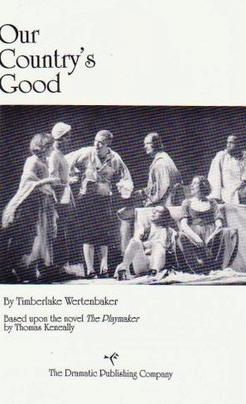
Our Country's Good is a 1988 play written by British playwright Timberlake Wertenbaker, adapted from the Thomas Keneally novel The Playmaker. The story concerns a group of Royal Marines and convicts in a penal colony in New South Wales, in the 1780s, who put on a production of The Recruiting Officer.

That Deadman Dance is the third novel by Western Australian author Kim Scott. It was first published in 2010 by Picador (Australia) and by Bloomsbury in the UK, US and Canada in 2012. It won the 2011 Regional Commonwealth Writers' Prize, the 2011 Miles Franklin Literary Award, the 2011 ALS Gold Medal, the 2011 Kate Challis RAKA Award, the 2011 Victorian Prize for Literature, the 2011 Victorian Premier's Literary Award, Vance Palmer Prize for Fiction and the 2012 NSW Premier's Literary Award Christina Stead Prize and Book of the Year.
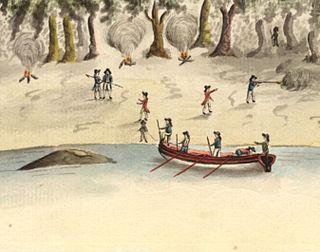
The Hawkesbury and Nepean Wars (1794–1816) were a series of conflicts where British forces, including armed settlers and detachments of the British Army in Australia, fought against Indigenous clans inhabiting the Hawkesbury River region and the surrounding areas to the west of Sydney. The wars began in 1794, when the British started to construct farms along the river, some of which were established by soldiers.

There are 20 known contemporary accounts of the First Fleet made by people sailing in the fleet, including journals and letters. The eleven ships of the fleet, carrying over 1,000 convicts, soldiers and seamen, left England on 13 May 1787 and arrived in Botany Bay between 18 and 20 January 1788 before relocating to Port Jackson to establish the first European settlement in Australia, a penal colony which became Sydney.
Patyegarang was an Australian Aboriginal woman, thought to be from the Cammeraygal clan of the Dharug nation. Patyegarang taught William Dawes the language of her people and is thought to be one of the first people to have taught an Aboriginal language to the early colonists in New South Wales.
Tony Birch is an Aboriginal Australian author, academic and activist. He regularly appears on ABC local radio and Radio National shows and at writers’ festivals. He was head of the honours programme for creative writing at the University of Melbourne before becoming the first recipient of the Dr Bruce McGuinness Indigenous Research Fellowship at Victoria University in Melbourne in June 2015.
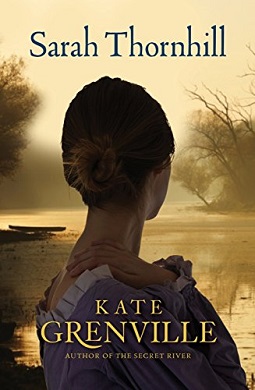
Sarah Thornhill (2011) is a novel by Australian author Kate Grenville. It is the sequel to the author's 2005 novel The Secret River.














